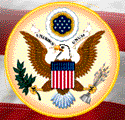 [National Security Directives - NSD]
[National Security Directives - NSD]
THE WHITE HOUSE
WASHINGTONJanuary 15, 1991
NATIONAL SECURITY DIRECTIVE 54
MEMORANDUM FOR THE VICE PRESIDENT THE SECRETARY OF STATE THE SECRETARY OF THE TREASURY THE SECRETARY OF DEFENSE THE ATTORNEY GENERAL THE SECRETARY OF ENERGY DIRECTOR, OFFICE OF MANAGEMENT AND BUDGET THE ASSISTANT TO THE PRESIDENT FOR NATIONAL SECURITY AFFAIRS THE DIRECTOR OF CENTRAL INTELLIGENCE THE CHAIRMAN OF THE JOINT CHIEFS OF STAFFSUBJECT: Responding to Iraqi Aggression in the Gulf (U)
1. Access to Persian Gulf oil and the security of key friendly states in the area are vital to U.S. national security. Consistent with NSD 26 of October 2, 1989, and NSD 45 of August 20, 1990, and as a matter of long-standing policy, the United States remains committed to defending its vital interests in the region, if necessary through the use of military force, against any power with interests inimical to our own. Iraq, by virtue of its unprovoked invasion of Kuwait on August 2, 1990, and its subsequent brutal occupation, is clearly a power with interests inimical to our own. Economic sanctions mandated by UN Security Council Resolution 661 have had a measurable impact upon Iraq's economy but have not accomplished the intended objective of ending Iraq's occupation of Kuwait. There is no persuasive evidence that they will do so in a timely manner. Moreover, prolonging the current situation would be detrimental to the United States in that it would increase the costs of eventual military action, threaten the political cohesion of the coalition of countries arrayed against Iraq, allow for continued brutalization of the Kuwaiti people and destruction of their country, and cause added damage to the U.S. and world economies. This directive sets forth guidelines for the defense of vital U.S. interests in the face of unacceptable Iraqi aggression and its consequences. (S)
2. Pursuant to my responsibilities and authority under the Constitution as President and Commander in Chief, and under the laws and treaties of the United States, and pursuant to H. J. Res. 77 (1991), and in accordance with the rights and obligations of the United States under international law, including UN Security Council Resolutions 660, 661, 662, 664, 665, 666, 667, 669, 670, 674, 677, and 678, and consistent with the inherent right of collective self-defense affirmed in Article 51 of the of the United Nations Charter, I hereby authorize military actions designed to bring about Iraq's withdrawal from Kuwait. These actions are to be conducted against Iraq and Iraqi forces in Kuwait by U.S. air, sea and land conventional military forces, in coordination with the forces of our coalition partners, at a date and time I shall determine and communicate through National Command Authority channels. This authorization is for the following purposes:
a. to effect the immediate, complete and unconditional withdrawal of all Iraqi forces from Kuwait;
3. To achieve the above purposes, U.S. and coalition forces should seek to:b. to restore Kuwait's legitimate government;
c. to protect the lives of American citizens abroad; and
d. to promote the security and the stability of the Persian Gulf. (TS)
a. defend Saudi Arabia and the other GCC states against attack;
4. While acting to achieve the purposes in paragraph 2 above and carry out the missions in paragraph 3 above, every reasonable effort should be taken to:b. preclude Iraqi launch of ballistic missiles against neighboring states and friendly forces;
c. destroy Iraq's chemical, biological, and nuclear capabilities;
d. destroy Iraq's command, control, and communications capabilities;
e. eliminate the Republican Guards as an effective fighting force; and
f. conduct operations designed to drive Iraq's forces from Kuwait, break the will of Iraqi forces, discourage Iraqi use of chemical, biological or nuclear weapons, encourage defection of Iraqi forces, and weaken Iraqi popular support for the current government. (TS)
a. minimize U.S. and coalition casualties and
5. The United States shall seek the maximum participation of its coalition partners in all aspects of operations conducted in either Kuwait or Iraq. (S)b. reduce collateral damage incident to military attacks, taking special precautions to minimize civilian casualties and damage to non-military economic infrastructure, energy-related facilities, and religious sites. (TS)
6. The United States will encourage Iraq's neighbors Syria and Turkey to increase their forces along their borders with Iraq so as to draw off Iraqi forces from, and resources devoted to, the Kuwait theatre of operations. (S)
7. The United States will discourage the government of Israel from participating in any military action. In particular, we will seek to discourage any preemptive actions by Israel. Should Israel be threatened with imminent attack or be attacked by Iraq, the United States will respond with force against Iraq and will discourage Israeli participation in hostilities. (TS)
8. The United States will discourage any participation in hostilities by Jordan. Similarly, the United States will discourage any Jordanian facilitation of, or support for, Iraqi military efforts. The United States will also discourage violation of Jordanian territory or airspace. (TS)
9. The United States recognizes the territorial integrity of Iraq and will not support efforts to change current boundaries. (S)
10. Should Iraq resort to using chemical, biological, or nuclear weapons, be found supporting terrorist acts against U.S. or coalition partners anywhere in the world, or destroy Kuwait's oil fields, it shall become an explicit objective of the United States to replace the current leadership of Iraq. I also want to preserve the option of authorizing additional punitive actions against Iraq. (TS)
11. All appropriate U.S. government departments and agencies are to prepare and present to me for decision those measures necessary for stabilizing to the extent possible energy supplies and prices during hostilities. (C)
12. Military operations will come to an end only when I have determined that the objectives set forth in paragraph 2 above have been met. (S)
[signed: George Bush]
Original Classification: Top Secret
Declassified: 1997
HTML by Steven Aftergood